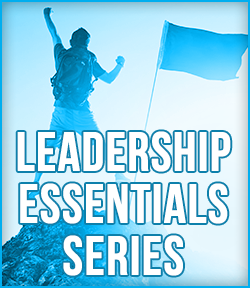 As you begin your day, which question do you ask yourself?
As you begin your day, which question do you ask yourself?
- “What’s on the schedule and the to-do list for today?”
- “What needs to get done today?”
- “What do I want to do today?”
- “What must I do today?”
The question you choose reveals your tendencies towards expectations, says Gretchen Rubin.
You probably know Gretchen from her Happiness Project, a NY Times bestseller for more than two years.
She stepped on stage at WDS with a clear conclusion about the key to happiness: self knowledge.
In getting to know ourselves, one key area to understand is how we respond to external rules and internal rules. Gretchen has identified these four categories:
- Upholder — accepts rules, whether from outside or inside. An upholder meets deadlines, follows doctor’s order, keeps a New Year’s resolution.
- Questioner — questions rules and accepts them only if they make sense. They may choose to follow rules, or not, according to their judgment.
- Rebel — flouts rules, from outside or inside. They resist control. Give a rebel a rule, and the rebel will want to do the very opposite thing.
- Obliger — accepts outside rules, but doesn’t like to adopt self-imposed rules.
Here are some of her examples.
An upholder stops at a stop sign at 3:00 a.m. in a small deserted town; so does an obliger. A questioner decides whether it’s safe to stop. A rebel rolls through the stop sign at 3:00 p.m. in traffic.
An upholder can train with a trainer or exercise on her own; a questioner can do either if he thinks it makes sense; a rebel will do neither, because the fact that she has an appointment or an item on her to-do list makes her want to disobey; an obliger can meet a trainer, but can’t get to the gym on his own.
Let’s pause for a minute.
Do any of these feel like they “fit” you? I’d love to hear your thoughts in the comments.
——
In this exercise, I realized something about myself that I’d never understood before.
Up until a few months ago, I was a hard core obliger. For a client or work team, I could get anything done. But accomplishing anything for myself was a struggle, and rarely successful. I think it’s because I derived my value and self worth from what others thought of me. I never wanted to let anyone down, and so I frequently let myself down.
Somehow, I’ve made the transition to upholder. I think it happened in January. You can read the whole story here. Here’s an excerpt of what I experienced.
It’s no secret that I’ve learned a lot about myself in the last year. I realized that I’d been living scared, making most of my decisions from a place of fear. I also began to understand that happiness was fleeting, recognizing that I’d often regret decisions that made me “happy” in the short-term. Instead, the real treasure was found in living a life of purpose and joy.
The only catch: I wasn’t sure exactly what my purpose was.
Back to what I heard in Storyline . . .
“When people plan their stories around themselves, they come to the end and realize their stories were empty. When we plan our lives around God, though, we find ourselves in a grand adventure. Our lives are no longer our own, they belong to Him. Our hope at Storyline is this process will be eye-opening for you. By the end, we believe you’ll be able to see more clearly what God is doing, and we hope you’ll find a subplot you were designed to live.”
Woah.
A tool for helping me find my subplot in God’s story: my purpose.
I jumped in with both feet, mapping out my past, understanding the themes of my life, finding redemption in the negative turns.
Then I got to the chapter on identifying my wants and desires and came to a screeching halt. The author must have predicted that response because it walks right through my thought train.
First stop: Guilt for my wants and ambitions. Next stop: What about God’s specific plan for my life?
To explain his approach, Miller references Decision Making and the Will of God by Garry Friesen, sharing its four principles:
- Where God commands, we must obey.
- Where there is no command, God gives us freedom (and responsibility) to choose.
- Where there is no command, God gives us wisdom to choose.
- When we have chosen what is moral and wise, we must trust the sovereign God to work all the details together for good.
So it’s possible that I can quit fighting my dreams and peculiar preferences and still be in God’s will?
Simply put, this rocked my world.
I learned to accept that the value was inside me all along – that it was okay to trust my own plans and ideas. I didn’t need permission or acceptance from someone else.
It’s still hard. I wrestle with people-pleasing, but I’ve learned to treat my own projects with the same level of importance. That has allowed me to value my own habits and preferences.
I know that, in the long run, being healthier and less stressed will be a benefit to those that I work with, but in the short term, some may not understand. They may see my emphasis on other things – family, eating healthy, exercise, learning, and allowing myself some white space – as letting them down on occasion. I’m still not completely comfortable with that feeling, but I’ve decided to draw the line. What matters is that our projects are being completed on time and with excellence. Being seen as a martyr that will sacrifice anything does not.
In moments where I question myself, I keep coming back to Whitney Johnson’s quote:
Imagine who you want your kids to become. Be that.
Through that lens, the decision is usually easy.
I’m still not done. I think it would be healthy to integrate more questioner tendencies, so that I could be more selective about what I commit to.
——
What about you? Are you satisfied with you the tendency you’ve developed?








Wow, at first blush, I would have considered myself a questioner. However, I realized that, like you, I am able to meet other imposed deadlines and standards, but I have not been able to uphold my own. Although, in the past year, I’ve really shifted on that. I’ve come to understand that I need to be committed to my desires, my dreams. I’ve been doing this little by little with my life, but not on the big things like my weight and business.
Thanks for the eye opener:-)
Thanks Nneka! I’ve been working on the same shift, and it gets easier as I realize my own disparity of consistency in working towards both sets of goals. I would never have believed that about myself, but the trends spoke for themselves once I identified them.
Best wishes on your journey!